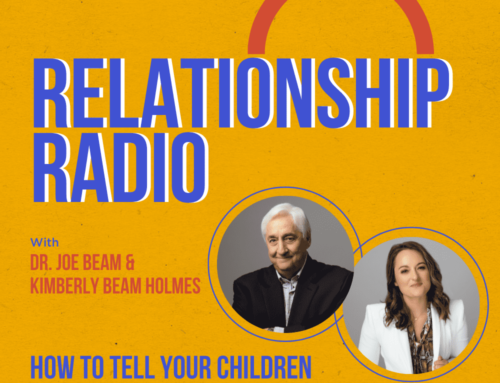Why do people divorce? Quite a question, isn’t it? Let me walk you through what the research says about reasons for divorce.
When we start talking about divorce, we can speculate all day long. If you ask people on the street, “What do you think is the biggest problem with marriage?” They will say something like communication. But when you start asking them, “What does that mean?”, you begin to realize that they’re talking about something other than communication.
There’s a researcher out there, Dr. John Gottman, who is absolutely amazing. He’s a guru when it comes to research about marriage. And in one of his books called The Marriage Clinic, he did a literature review. If you’ve ever had to do one, a literature review is when you’re about to research a particular topic. You find existing scholarly literature where other people have researched that same topic.
You’re looking for commonalities, differences, the strengths of their studies, the weaknesses of their studies, and idiosyncrasies. In other words, what do we know so far? What remains from previous research that may not be not right at all? Then, you summarize all that into a literature review.
That was quite boring, wasn’t it? But from that, you can understand how John Gottman, in his literature review, came to this conclusion: If you look at the literature out there, you’re going to find that typically, people’s reasons for divorce can fit into three categories: a lack of love, like, or respect.
Reasons for divorce: a lack of love, like, and respect.
For example, 67% of women who wanted out of marriage said, “I do not feel he loves me.”
Another is sensitivity to being belittled. 59% of both men and women said, “I feel like my spouse disrespects me and puts me down.” The third reason people give is, “I don’t feel like my spouse likes me.”
People typically want out of a relationship if they feel you don’t love them, if they feel you don’t respect them, or if they feel you don’t like them. But, notice, Gottman and those various research projects did not study what the spouse felt–the one doing the actions. Instead, they studied the other person who wants to have a relationship. Therefore, rather than trying to evaluate if that person loves, likes, and respects their spouse, they were studying, “Does this person feel loved, liked, and respected?”
Sometimes, no matter how much you think you’re communicating like, love, and respect, your spouse does not perceive it that way.
I can give you several examples. But in a short article like this, let me give you one or two.
If you are dominating and controlling, for example, your spouse tends to feel like they need to get your okay before they can do various things. Or if you handle the money in such a way that they have to ask for it. Or if you tell them how to do this, or if you tell them how they did something wrong and how they should do it differently. Therefore, they feel you’re controlling. Those people will feel disrespected. If they try to explain what they think about something and you continually talk rather than listen to them, they will not feel respected.
If you spend more time with your hobby than with your spouse, more time at work than with your family, your spouse will tend to think, “They don’t love me. They love what They’re doing.” For example, with a couple that I dealt with years ago, the husband loved being in the woods. He even showed people how to hunt and things like that. They had three boys. They were all very young, and the oldest was six.
And as I talked to the wife, she said, “I can’t raise three boys by myself. He spends all of his time in the woods. He needs to show up to help me sometimes. I don’t mind his profession. I’m happy with him doing that. But it can’t be all the time, because I feel abandoned. I feel alone.” That’s another way of her saying, “I feel like he loves being in the woods, not being with me.”
Now, the husband would protest all day long. “I love you with all my heart. I love my boys with all my heart.” But you see, we do not measure what he felt. We measure what she felt based on his behavior, his actions. And so, it’s not your actions. Their interpretation tops your intention.
Examine your behavior.
If you want to find out if your spouse wants to leave you, what it may be for, and start examining so that you can turn things around, think about respect. Look at the three main reasons for divorce. Are you communicating in some fashion where they feel disrespected? Feel disliked? Feel unloved? And if that’s how they’re interpreting your behavior or your lack of behavior, what do you do? You’re beginning to see where the reasons for divorce are coming from and why your spouse doesn’t want to be with you anymore. You can start figuring out how to fix it when you do that.
We all have three things we want to feel when it comes to any relationship.
I want you to love me, I want you to like me, and I want you to respect me. We all want to feel seen. What that means is:
- I want to matter.
- I want to know that I exist in your life in an important position.
- You see me physically, but you also see me emotionally.
- You know that I’m there and that my being there is important to you.
- I don’t want to be insignificant.
- I don’t want to be secondary in your life.
Another thing I want is to be secure. I want to know that your relationship with me will not end. If you spend too much time on your hobby, too much time at work, or too much time with your friends, my security starts getting wobbly. Maybe, just maybe, even though I think you see me, I don’t know if you’re going to stay with me, because it seems that other things in your life are more important.
And then the third part of that is: I want to be soothed. What that means is, I don’t care who you are; I don’t care what position you hold in life. You can be the most brilliant business person on the planet, you can be the wealthiest person in the world; it makes no difference. Each of us wants someone to take care of us, to be soothed. We want somebody to listen to us when we don’t know what to do. Somebody who will hold us when we find ourselves afraid or ensure they support us, no matter what’s happening. Every person on the planet needs that. We want to be secure. We want to be seen and want to be soothed. Are you doing that for your spouse?
You might be thinking it’s too late to fix anything after reading these reasons for divorce.
But, after working with thousands and thousands of marriages, we usually find that the “too late” point is much further down the road than people would think. We have witnessed many marriages work out their problems, making the relationship good again. Even when nobody believed it was possible.
So, don’t give up too quickly. Maybe you’re the person contemplating leaving the relationship because your spouse doesn’t seem to love you, doesn’t seem to like you, or doesn’t seem to respect you. You don’t feel safe, you don’t feel seen, or you don’t feel secure. That’s fixable as well. But you can’t force them to do it.
So how do you do it? Well, a free resource we have for you is our free mini-course about how to fall in love with each other again. It won’t give you all the answers, but it has some excellent information. And that can get you started on fixing this. You can also book a free strategy call with one of our client representatives. They will be glad to listen to you. They’re not counselors, they’re not therapists, but they will listen to you and help you know what resources we have that can help your situation.
We have many things that can help you repair a broken marriage, to help you find respect. To help you to be seen and to see, to help you be secure and give security, and to help you be soothed and to be soothing. Hard to do? Yes. But can it be done? Absolutely.






